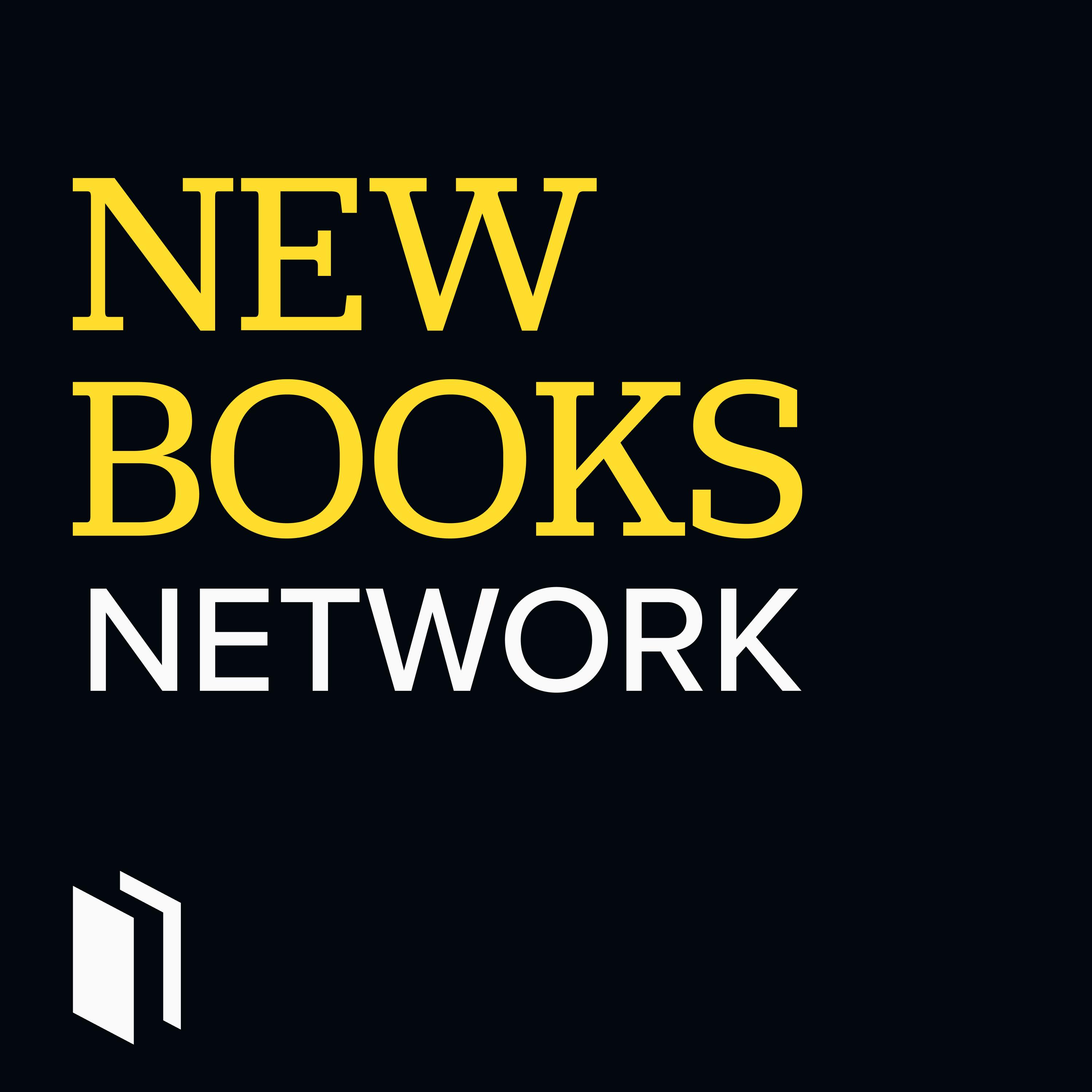

New Books Network
New Books
Interviews with Authors about their New BooksSupport our show by becoming a premium member! https://newbooksnetwork.supportingcast.fm/new-books-network
Episodes
Mentioned books

Feb 5, 2026 • 1h 7min
Patricia Daley and Ian Klinke, "Human Geography: A Very Short Introduction" (Oxford UP, 2025)
Patricia Daley, a scholar of African human geography focused on refugees, violence, and decolonizing curricula, and Ian Klinke, a political geographer studying geopolitical thought, the far right, and nuclear landscapes, discuss space as a lens on inequality. They explore colonies, pipelines, borders, high rises, workplaces, conservation areas, and even outer space. The conversation traces geography’s colonial roots and contemporary stakes.

Feb 5, 2026 • 1h 5min
Joseph Scalia III and Lynne S. Scalia, "Critical Consciousness: Beyond Impasses in Environmentalism, Psychoanalysis, and Education" (Routledge, 2025)
Joseph Scalia III, psychoanalyst, environmental activist, and co-director of the Institute for a Democratic Psychoanalysis, brings a pluralistic take on entrenched institutions. He explores institutional ossification across psychoanalysis, environmentalism, and education. Conversations trace his Montana wilderness roots, reform efforts, resistance from establishments, and where small pockets of solidarity might spark broader change.

Feb 5, 2026 • 48min
Eric Chopra, "Ghosted" (Speaking Tiger, 2026)
Eric Chopra, public historian and storyteller who founded Itihasology, walks Delhi’s haunted monuments. He maps spirits, jinn rituals, and why ruins collect memory. Short, vivid tales range from Jamali-Kamali’s locked tomb to Malcha Mahal’s urban legend. He probes colonial ghosts, queer readings of love, and ethical tourism in the city’s spectral landscape.

Feb 5, 2026 • 50min
Wisdom of the Goddess: The Divine Feminine in South Asian, Southeast Asian, and Himalayan Art
Hillary Langberg, a scholar-curator of South and Southeast Asian goddess traditions and Buddhist art, unveils an online Smithsonian show on nine goddesses. She traces her path from fieldwork to museum practice. Conversations cover curatorial choices, cross-religious goddess forms, pedagogical resources, tantric and sutra contexts, and the benefits and limits of presenting divine feminine art online.

Feb 5, 2026 • 1h 39min
J. L. Schellenberg, "What God Would Have Known: How Human Intellectual and Moral Development Undermines Christian Doctrine" (Oxford UP, 2024)
J. L. Schellenberg, philosophy professor and author of What God Would Have Known, links human intellectual and moral development to claims about Christian doctrine. He explores changes in scholarship on Jesus and scripture, psychology and gender, and how missing facts affect salvation and revelation. The conversation examines divine hiddenness, the Holy Spirit’s track record, and alternatives to traditional salvation.

Feb 5, 2026 • 1h
164 Maurice Samuels: Jewish Assimilation, Integration and the Dreyfus Affair (JP)
Maurice Samuels, historian and director of Yale’s Program for the Study of Antisemitism, explores Alfred Dreyfus and French Jewish history. He traces integration without assimilation, the Dreyfus miscarriage of justice, laïcité’s evolution, and how Jews became a test case for French universalism. Conversation ranges from Revolutionary emancipation to Léon Blum and contemporary identity debates.

Feb 5, 2026 • 45min
Educated Out: How Rural Students Navigate Elite Colleges—And What It Costs Them
Dr. Mara Casey Tieken, an education professor at Bates College who researches rural schooling, discusses how geography shapes rural first-generation students' experiences at elite colleges. She explores barriers in rural schools, students' struggles with belonging and identity, the nonfinancial costs of attending elite institutions, and policy ideas to keep opportunity close to home.

Feb 5, 2026 • 1h 1min
Nina Bandelj, "Overinvested: The Emotional Economy of Modern Parenting" (Princeton UP, 2026)
Nina Bandelj, Chancellor's Professor of Sociology at UC Irvine and author of Overinvested, explores how parenting became an all-consuming emotional and financial project. She traces shifts from working children to intensive investment, the rise of tutoring and extracurricular industries, growing parental debt, unequal spending by income, and the social costs of privatized childrearing.

Feb 5, 2026 • 1h 18min
Kevin Hart, "Lands of Likeness: For a Poetics of Contemplation" (U Chicago Press, 2023)
Kevin Hart, Jo Rae Wright University Distinguished Professor at Duke Divinity School and author on theology, phenomenology, and literature, explores contemplation as a way of reading and living. He traces contemplative roots from Augustine to Husserl and Romantic poets. He links poetry, phenomenology, and slow reading to disciplined practices that reveal fresh perception and the particularity of experience.

Feb 5, 2026 • 1h 4min
Jacqueline Riding, "Hard Streets: Working-Class Lives in Charlie Chaplin’s London" (Profile Books, 2025)
Jacqueline Riding, historian and curator who researches social and cultural history, explores working-class London around Chaplin’s rise. She traces neighborhood change, street culture as informal arts training, music-hall economics and pathways to mobility. The conversation highlights local institutions, politics, household survival and vivid personal stories from Lambeth and Woolwich.


